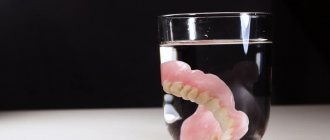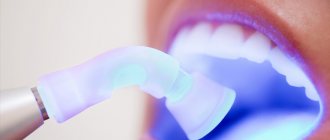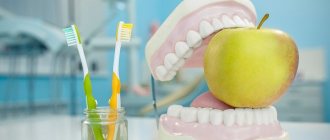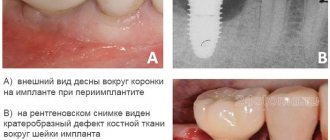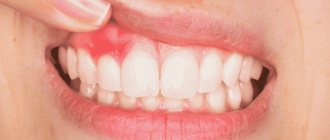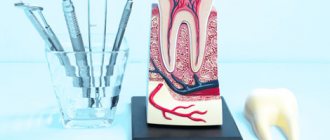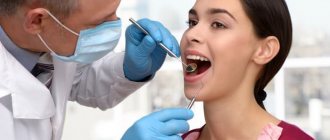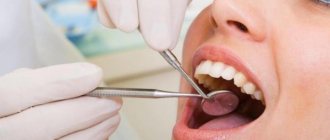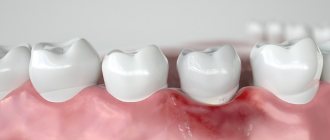Find out more
( 2 ratings, average: 5.00 out of 5)
Eating after 6 pm is a bad habit because the stomach does not have enough time before bed to digest food well. Eating before bed can lead to poor sleep quality, metabolic problems, a feeling of heaviness in the stomach, and other problems. Of all the rules that relate to weight loss, the secrets of not eating after 6 pm are the most common. Is there anything special about evening time? Why does eating before bed make you gain weight? This is true. Many foods simply do not have time to be digested; as a result, they become a burden in the gastrointestinal tract and do not provide any benefit. Moreover, during this period the body is already preparing for sleep, and all calories eaten during the “forbidden time” will go into fat tissue, and not into energy. Of course, you can overcome this habit on your own if you sort everything out.
Why can’t you eat or drink before surgery?
Sometimes you should not eat or drink before surgery or other medical procedures.
It depends on what kind of surgery you are having and what kind of anesthesia you will need. Before elective surgery or other medical procedures, your doctor or nurse will ask you not to eat or drink anything. If you are undergoing local anesthesia, you will most likely not need to fast from food. Local anesthesia numbs a small area of the body and can be used as an ointment, spray, gel or injection.
Is it possible to eat before gastroscopy?
The diet in anticipation of any endoscopy changes as it approaches the day of diagnosis.
The list of permitted and prohibited products is different on the first preparatory day and 1 day before endoscopy. You need to understand that endoscopy is done exclusively on an empty stomach, since eating even a small amount of food in the morning triggers an active and aggressive process of gastric juice production. This leads to changes in the appearance of the mucous membrane, which makes it difficult to obtain reliable information. 3 days before the study, you must give up alcoholic beverages, fatty, spicy and fried foods, smoked foods and pickles. That is, you need to avoid foods that promote gas formation and changes in stomach acidity. 2 days before endoscopy, you need to adhere to a more limited diet, excluding the consumption of fatty fish and meats, fast food (in any form), mushrooms, sauces, smoked meats, canned food, nuts and even seeds. The day before the examination, you must refrain from whole grains, beans, milk, cottage cheese (a small handful of exclusively low-fat cottage cheese is allowed), flour, pasta, tomatoes, fruits and dishes that promote prolonged digestion and fermentation. It is forbidden to have breakfast directly on the day of this medical procedure.
You will need to refrain from eating and drinking if you are going to:
- General anesthesia. This type of anesthesia turns off the patient's consciousness. You see nothing, hear nothing, feel no pain, your muscles completely relax, and after the operation there are no memories of it. Some types of general anesthesia are given intravenously, sometimes it is a gas that you are given to inhale.
- Regional anesthesia. This type of anesthesia numbs any part of the patient's body, for example, a leg, arm, or lower half of the body. Typically, the numbing agent is given through a catheter or injection.
- Sedation. These are sedatives, after which a person relaxes and can fall asleep. Sedatives are injected into a vein using an injection or catheter.
Finding the cause of uncontrollable appetite after 6 pm
Emotional and physical hunger
Sometimes you want to eat at such times, because the body is really hungry, especially if it did not receive enough calories during the day. In other cases, night eating occurs due to emotional hunger. Determining whether evening snacking is physical or emotional is an important step in addressing the problem. To decide, you need to answer the following questions:
- Does hunger appear suddenly or gradually? Emotional hunger most often manifests itself in the form of sudden attraction. Physical hunger comes gradually.
- What exactly do you want to eat? When a person experiences emotional hunger, they are more likely to crave sweet or salty junk food than something substantial. And the list of foods that can be eaten after 6 fades into the background.
- How many calories did you eat during the day? If a person is on a calorie-restricted diet or skipping meals, they are likely to feel physically hungry in the evening. However, if there was no such problem, hunger is emotional in nature.
- Was breakfast missed? If so, it makes you crave mindless snacking throughout the day. Skipping breakfast is especially bad for those people who like to reward themselves with food in the evening after a working day.
- How many snacks did you have? Sometimes eating small "empty calorie" snacks (snacks, cookies, soda, etc.) results in less food being eaten during dinner. Naturally, after a short period of time, the stomach will understand that it is missing something.
Emotional hunger most often manifests itself while watching movies on the computer or on TV, light reading, traveling on the Internet, etc. At the same time, the brain is completely focused on the main activity, and not on what is currently happening to the stomach. It’s not for nothing that they say that while watching a movie you can eat much more food than you need.
How to control hunger hormones?
The four main hunger hormones are often responsible for the desire to eat after 6 pm. An abundance or deficiency of insulin, leptin, ghrelin, peptide YY, or cortisol can lead to unnecessary snacking.
- Insulin helps the body process sugar. Insulin levels tend to rise significantly after consuming empty calories in the form of refined sugar and processed wheat. The peak is temporary, and then you will feel hungry again. Sugary foods, white bread and pasta should be avoided, especially during lunch, as this can help maintain normal insulin levels and prevent unwanted hunger.
- Leptin is a hormone that is primarily responsible for telling the brain that you are full of food. However, increasing consumption of sugar, flour and processed foods interferes with this process. Again, avoiding sugary, processed foods throughout the day allows leptin to adequately protect the body from overeating.
- Ghrelin is a hunger hormone and helps regulate appetite. This allows a person to know when to eat. As with the above-mentioned hormones, it can be exceeded due to unsustainable eating habits and poor quality food. Therefore, every day you need to get foods based on whole wheat, fruits and vegetables, and lean proteins.
- Peptide YY is a hormone found in the gut that, like leptin, helps the body know it has enough food. When the intestines are not supplied with healthy calories, peptide YY will signal that more food is needed, even if the person has just eaten. Therefore, you need to eat nutritious meals, not sweets and snacks.
Another hormone that affects the desire for food after 6 is cortisol, a stress hormone. Although cortisol levels are less related to hunger than the above hormones, they do cause insulin and blood sugar levels to rise. This causes hunger. In other words, stress can lead to overeating. Meditation, various physical exercises, and communication with loved ones will help you cope with stress.
How many hours before surgery should you not eat or drink?
Different in different clinics. Just follow your doctor's and nurse's instructions. For example, they may ask you:
- Do not eat solid food after a certain hour the day before surgery. Do not drink milk or cream (even a spoon in tea or coffee counts). The milk curdles in the stomach and turns into small clots;
- drink only completely liquid drinks (water, juice without pulp, tea), but no later than two hours before surgery:
- stop eating or drinking anything two hours before surgery.
There may be other instructions, for example, if you have eaten a lot, you will have to abstain from food longer. You may be told not to chew gum or suck on candy after a certain hour.
There are special rules for babies and small children. Most clinics will allow you to breastfeed your baby four hours before surgery. Formula will have to be fed earlier because it stays in the stomach longer. Your doctor or nurse will give you detailed advice.
What products should you be careful with?
How soon can you eat after installing a reflective filling? There is no definite answer. But regarding the food consumed, experts agree. Thus, it is recommended to exclude coloring products for 2–3 days after a light filling. Ingestion of foods, including drinks, containing dyes may affect the color of the composite, since the filling is still highly permeable.
After restoring teeth with a light filling, it is better to avoid the following foods for at least two days:
- coffee;
- beet;
- carrot;
- blueberry;
- carbonated drinks;
- chocolate and cocoa.
In small quantities you can use:
- black tea;
- strawberry;
- cherries;
- natural juices.
Dentists pay special attention not only to when and what not to eat with a light filling, but also to the temperature of the food eaten. You should not eat too hot or cold foods, or eat them one after another or together. The temperature contrast can lead not only to damage to the filling, but also to damage to the tissues of a healthy and diseased tooth.
How long does pain last after tooth extraction?
During the removal procedure, the tissue that surrounded the tooth is injured and the gums become inflamed. Due to the effect of anesthesia, the patient does not feel pain immediately after removal. But after a couple of hours, pain may occur. Over time, the pain becomes less and less. The duration of pain depends on numerous factors:
- The patient takes medications prescribed by the doctor to speed up healing.
- Complexity of the procedure.
- Strict compliance with all instructions and recommendations of a specialist.
After a complex removal, pain can spread not only to the gums, but also to the cheek, as well as to neighboring teeth. The healing process after such manipulation will take a little longer. Swelling after tooth extraction usually goes away within a couple of days. If, several days after the procedure, swelling and pain do not go away, then this may be a symptom of the development of complications. In such a situation, you must immediately seek the help of a specialist. In our 3D dental clinic "NovaDent" all surgical procedures are performed using high-quality modern anesthesia. The consultation is conducted by experienced, qualified dental surgeons who remove teeth as carefully as possible. We try to create comfortable living conditions for our patients, and do everything possible to minimize the risks of complications after removal. By making an appointment with our dentistry, you will receive a detailed consultation, be able to undergo highly accurate diagnostics, and also receive high-quality dental services using modern equipment using reliable materials. Sign up right now on our website using the registration form or call the administrators, who will be happy to find a convenient appointment time for you - we work seven days a week and weekends. Phone number to make an appointment with our specialists. Trust your health only to professionals!
How nutrition shapes our body
What we eat determines how we look. Most of the population is unhappy with what the mirror reflects, and there are two categories of people:
- those who want to lose excess weight;
- looking to gain muscle mass.
How fat loss and gain occurs
In the battle between the scale dial and delicious buns, calories are decisive. These are units of energy. Our body needs a charge to set all parts of the body in motion, to continue the non-stop work of all internal organs, we take it from food. Previously, during the period of difficult food production, a person needed more strength for daily work - for cultivating the land, for long walks. At the same time, the products were often low in calories - vegetables and fruits, vegetable oil.
Modern life simultaneously improved conditions in two directions:
- Daily energy consumption decreased - transport appeared, an elevator and an escalator were designed. To avoid unnecessary movements, they even created a remote control. Working in an office at a computer practically does not disturb a person’s state of rest.
- The calorie content in purchased provisions has increased - candy, cakes, fast food, carbonated sweet drinks - these are just time bombs in packaging. One bar of chocolate contains one fourth of the daily food requirement, despite the fact that we usually eat it with tea for dessert. And few people are interested in fruits in their pure form anymore - it’s more economical and convenient to buy juice, which contains a lot of sugar.
These two trends have led to an oversupply of unspent calories.
They are perceived by the body as reserves and are converted into fat reserves. To get rid of this safety net of fat, you need to create an energy deficit, that is, spend more than you take in. Then you will have to use up your reserves. This can be achieved in the following ways:
- Train a lot, while choosing aerobic exercise, that is, cardio exercises of moderate difficulty. This allows glucose to be taken out of cells using oxygen. You can achieve a more effective anaerobic threshold, but then the exercises will be too intense for the cardiovascular system and an unprepared person in general.
- Reduce your diet - don’t eat after 6, monitor the amount of calories, create deficit conditions for the body.
But the most effective way is to combine these two methods, that is, increase consumption and reduce energy supply.
However, this must be done gradually so that the shaking is not perceived as stress, otherwise the reverse process may occur. Instead of giving away fat reserves, the body will fight for every deposit. In winter, watch out for sportswear, choose ski suits from the Stayer brand. Due to the cost of heating the body, the energy balance may be disrupted, not to mention the fact that you may simply get sick. Dress warmly and comfortably during the winter season.
After difficult removal
Such removal is carried out when the dental roots are incorrectly located, on unerupted dental units or in the absence of the crown part of the tooth. Also, more complex surgical procedures may be required if the wisdom tooth is located too far away or a cyst has formed next to it. Late erupted wisdom teeth most often create many problems. Basically they grow incorrectly. The formation of a cyst is a bubble filled with cells and bacteria. And if the cyst is not removed on time, this can lead to the development of serious consequences. After such manipulations, sutures are placed at the removal site. The healing period of the gums after complex tooth extraction may vary in each specific case. If the specialist has not stated, then you should definitely clarify how long after the procedure you can start eating. It is also necessary to take into account the fact that when stitches are applied, they will have to be removed after some time. But with sutures, the socket is more reliably protected. However, even in this situation, you should refrain from eating hot, salty or spicy foods immediately after the removal procedure.
Details of the evening menu
Late dinner has a number of restrictions. Of course, we are not talking about a full meal. It's like a late-night snack to improve your metabolism and promote sound sleep.
- Choose foods that are easy to digest . Dinner should not include fried or too fatty foods, because they take a lot of time to digest. But dishes that are steamed and cooked in water are available in the evening. You can also eat foods baked in foil.
- Choose warm food for the last meal before bed , this is the key to a restful sleep. Allow yourself some long carbohydrates, they will calm your brain.
- The importance of the main amino acid tryptophan for sleep has long been scientifically proven. It is involved in the production of melatonin (regulator of biorhythms) and serotonin (responsible for emotional well-being). The source of tryptophan is protein: hard and processed cheeses, crabs and shrimp, chicken, rabbit, turkey, and legumes. It is found in eggs, cottage cheese, and cereals. In order for the amino acid to reach the brain, complex carbohydrates are also needed. Therefore, the interaction of long carbohydrates with proteins is a direct path to the brain and restful sleep.
Other tryptophan foods include seeds and nuts, honey and bananas. A spoonful of honey with a small amount of low-fat milk is an ideal recipe for sleep, especially for snorers.
- A sleep hormone such as melatonin is synthesized, in addition to the above products, by cherries and cherries, almonds and pine nuts. Whole grain bread is also good for this purpose.
The situation with melatonin will be improved by oatmeal, but be sure to eat porridge, do not confuse it with cereal. Such food is an exemplary mixture of protein compounds and long carbohydrates. But, it is important to always adhere to the permissible serving size. Overkill is unacceptable.
- Calcium is extremely important for conducting impulses along nerve fibers. In order not to spoil your sleep and make the muscles of the larynx work, eat dairy products with a small percentage of fat for dinner. Give preference to yogurt.
- Another factor that affects sleep is magnesium. To avoid violations, eat pumpkin seeds or spinach, peanuts or cashews for dinner.
What is prohibited? Avoid foods high in saturated fatty acids and heavy foods. You don't need to drink a lot of fluids in the evenings, as you will have to get up to go to the toilet too often at night. Remember, the best rest is uninterrupted sleep.
Do not include red meat, sausages, or offal in the evening menu. Chocolate and salted fish are not good for you in the evening. Also, avoid coffee and strong black tea at dinner.
But a little soothing chamomile or lemon balm tea is helpful. You can brew hawthorn fruits. It is useful for hypertension, which is often the cause of snoring.
It happens inside of us
The body does not recover immediately after suffering intoxication, because toxic substances already had a detrimental effect on almost all organs. Often after poisoning, the stomach hurts - this is explained by the fact that the gastric mucosa becomes inflamed - acute gastritis develops. The stomach stops doing its usual job - digesting food. Nausea, belching and pain appear after poisoning. Poorly digested food enters the intestines. And he, of course, is “dissatisfied” with the poor functioning of the stomach, and his “indignation” is manifested by bloating, gurgling and diarrhea after poisoning.
First of all, the liver suffers from intoxication: it works around the clock, seven days a week, neutralizing toxic substances that enter the body. “Fatigue” of the liver may be indicated by heaviness in the right side, yellowness of the skin, bitterness in the mouth, and elevated temperature after poisoning. During the period while recovery from poisoning is underway, general weakness, pain in muscles and joints, poor appetite, insomnia and other symptoms may bother you.
During the recovery period, medications are prescribed that improve digestion processes (enzymes) and the intestinal sorbent Enterosgel, which neutralizes and removes toxic molecules.
To restore beneficial intestinal bacteria, doctors prescribe effective tablets after poisoning - probiotics.
Why is it important to follow your dentist's recommendations?
Modern methods and technologies for caries treatment, which are used by doctors in dental clinics, help quickly, painlessly and effectively solve the problem of dental caries. If the doctor correctly selected the filling material and installed the filling in compliance with all technological details, the restored tooth can serve the patient for many years.
But, in addition to the professional work of the doctor and the quality of materials, the durability of the filling is affected by compliance with the dentist’s recommendations immediately after caries treatment.
One of the first questions to ask your doctor is when you can drink water and have lunch or dinner after dental treatment.
What about weight loss with fractional meals?
Constant consumption of food, even in small portions, disrupts the biological clock and forces the gastrointestinal tract to constantly work, which does not contribute to weight loss.
And if the benefits of split meals up to five times a day are questioned by scientists, then eating six or more times a day can harm your health. Those who eat too frequently have an increased risk of developing various diseases. Apparently, it is not the fact of eating that plays a key role for the body, but the interval between meals. Fasting for 12–16 hours increases insulin sensitivity, reduces appetite, systemic inflammation, and blood cholesterol levels.
In addition, there is evidence that when providing the specified “hungry” interval, there is an increase in the production of brain neurotropic factor, which is responsible for cognitive functions and neuronal growth.
Soft food
If you answer the question of how long after tooth extraction you can start eating, then you can eat food either on the day of the operation or on the next day. However, it should be remembered that food must be soft at first. In order for the healing period to pass comfortably and quickly, experts recommend consuming soups, liquid cereals, purees, as well as foods enriched with vitamins in the first 2-3 days. The diet should include fruits, but preference should be given only to those with soft flesh. These are peaches, bananas, seedless berries, melon, apricots and persimmons. But it is better to refrain from citrus fruits such as oranges, lemons, kiwi, pomegranate and others. The large amount of acid contained in them has a negative effect on irritated gums.
Eating food
The period of time during which you cannot eat after tooth extraction depends on the individual characteristics of the patient and the complexity of the operation performed. Most often, a couple of hours after removal, specialists allow you to eat something liquid. Dairy products, such as yogurt or kefir, are good for this. Thanks to such food, the body will quickly be satisfied, and the site of tooth extraction will not be damaged. During your first meal, you should not eat chips, crackers or deep-fried meat. Such hard food will greatly damage the cavity.
Proper nutrition before and after strength training
The second process associated with exercise and food is gaining muscle mass. Most athletes develop a special high-calorie menu with a lot of protein. The concept of calories is not the main concept here. Their quality is important here. The energy content of the product is measured along with the composition of each dish: the number of carbohydrates, fats and proteins per 100 grams.
Each substance has its own function:
- Sugars are the first source of energy, which is why there are so many kilojoules in sweets. Its excess makes people very energetic.
- Lipids are storage cells for storing energy-intensive substances. Fatty dishes are rich in these elements, so the body stores fat deposits from them.
- Proteins are building materials, without which muscle growth does not occur. It is found in meat, dairy products, and some legumes.
The balance of these substances leads to the simultaneous harmonious occurrence of all processes:
- there are enough carbohydrates in the blood for everyday activities, there is enough energy in the required amount;
- a small proportion of fat guarantees better breakdown of other microelements;
- muscle mass increases due to protein and physical activity.
So there are three types of food:
- low calorie;
- protein;
- balanced.
In everyday life, you need to stick to the last option, but there are cases when you should pay closer attention to the menu.
